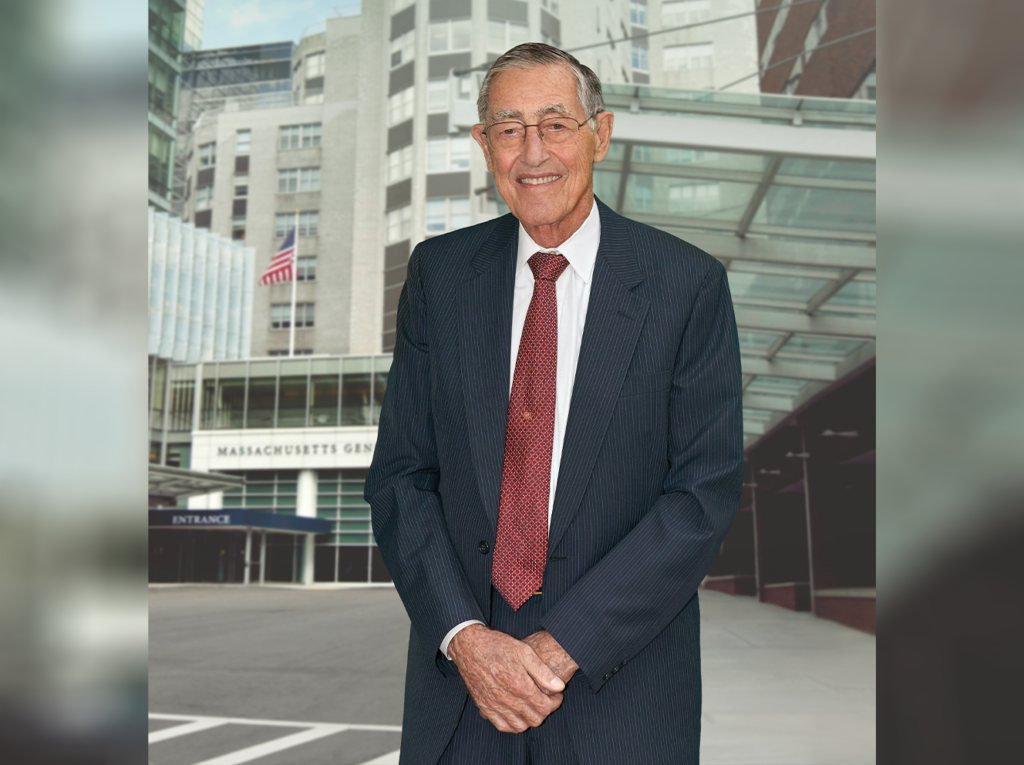More than 150 million people suffer from alcohol-related liver disease worldwide. Not only is there no cure, there’s also no treatment for advanced liver disease short of a liver transplant. Given the many mental health impacts of the COVID-19 pandemic, hospital admissions for alcohol-related liver disease have surged since the virus emerged.
And the escalation of alcohol-related liver disease throughout the pandemic includes a surprising number of young patients, according to Jay Luther, MD, director of the Alcohol Liver Center at Massachusetts General Hospital. “We’re seeing many patients between the ages of 20 and 40 with advanced liver disease,” says Dr. Luther.
This recent increase, and the bleak prospects for patients diagnosed with alcohol-related liver disease, are why Mass General’s Alcohol Liver Center, the first of its kind in the nation, is so important. Founded in 2019 by Dr. Luther, Russell Goodman, MD, PhD, DPHIL, and Esperance Schaefer, MD, MPH, the multidisciplinary clinic is housed in and supported by the Division of Gastroenterology at Mass General. Center clinicians identify and treat alcohol-related liver disease in both inpatients and outpatients and develop customized treatment plans for each patient. The team is specialized in fields like liver disease, addiction and social work. To continue to drive research in the field with the goal of developing therapies to cure the disease, clinicians also manage clinical trials and conduct cutting-edge scientific investigations.
This forward-looking, multidisciplinary approach has been a winning formula for the center’s patients, who are often grappling with significant behavioral and lifestyle changes in addition to intensive clinical treatment to manage their diagnosis.
“In the past, treatment for alcohol-related liver disease was disjointed; the specialties existed but they didn’t work together for these patients,” says Dr. Luther. “By having liver and alcohol specialists working together, there is greater patient buy-in, because they see the connection between all parts of their treatment.”
Earlier Detection for Better Health
Because there is still no cure for liver disease, the only treatment today is early detection: discovering the early signs of the disease and stopping its progression before the liver damage is permanent.
To do this, the team at the Alcohol Liver Center has developed a hospital-wide program to test patients who indicate some level of alcohol use disorder using non-invasive scanning technologies.
Even with successful rehabilitation, early detection of alcohol-related liver disease is crucial because once liver disease reaches an advanced stage, it continues to spread — even if the patient stops drinking. If caught early, some early liver damage can be reversed with medication and lifestyle changes.
Dr. Luther and colleagues at the Alcohol Liver Center hope to implement other clinical protocols like this, bringing the center’s research to the bedside of patients and making an impact on the health of patients at Mass General and at peer institutions.
Exploring a Mysterious Disease
Little is known about a disease that causes nearly 100,000 deaths in the U.S. each year and affects all races, genders and socioeconomic groups.
“We still don’t how alcohol causes liver disease,” says Dr. Luther. “This makes it a difficult disease to treat, and it speaks to the complexity of a disease that, after 100 years of research, still has no FDA-approved treatment. For the last 50 years, despite all the advances in science and technology, there have been no major medical advances in identification or management of alcohol-related liver disease.”
This is why the center’s research mission, which is gaining momentum and shining a light on the underpinnings of the disease, is so critical to the field as a whole. Dr. Luther and his team led a recent study that identified two key biomarker targets for drug development. These two molecules — cGAS and Cx32 — may help scientists understand how alcohol damages the liver and why the disease continues to spread even after alcohol consumption stops.
“Now that we know the key players in this pathway, we finally have drug targets for treatment development,” says Dr. Luther. The results of his study were published in the Proceedings of the National Academy of Sciences last year. “Until now, we haven’t had any successful leads.”
In addition to the investigation that discovered the cGAS and Cx32 biomarkers, the center’s research arm runs clinical trials of potential treatments and is conducting studies to help understand if alcohol is caused by metabolic changes in the liver or by inflammation. The center’s scientists also plan to develop a database to identify patterns in the illness that could help develop new therapeutic targets and treatment options.
“There are many research questions that we need to answer — and fast,” Dr. Luther says. “Philanthropic support will help the center advance our current investigations, build a database and drive other studies that will continue to advance the field and extend the health and lifespans of patients with this disease.”
To support the Alcohol Liver Center or Dr. Luther’s research, please contact us.
“Now that we know the key players in this pathway, we finally have drug targets for treatment development. Until now, we haven’t had any successful leads.”




